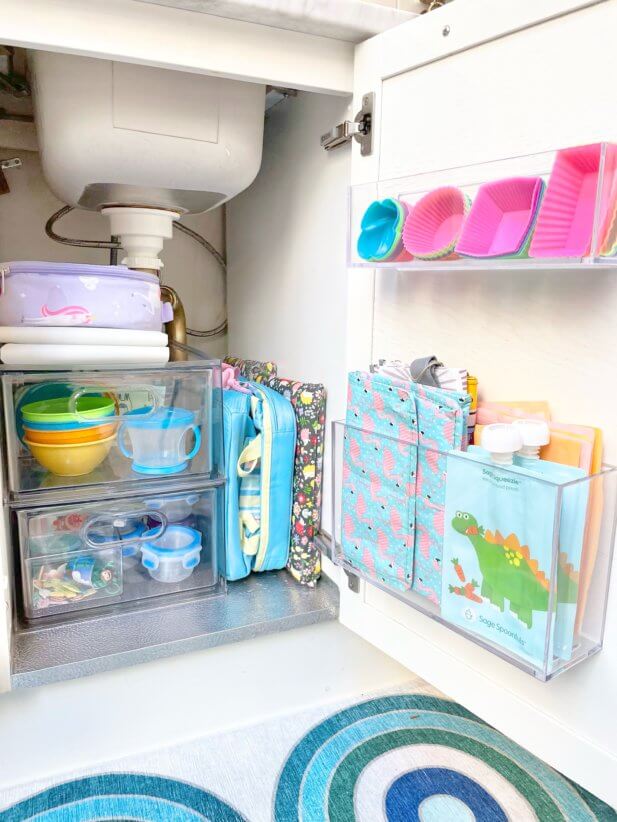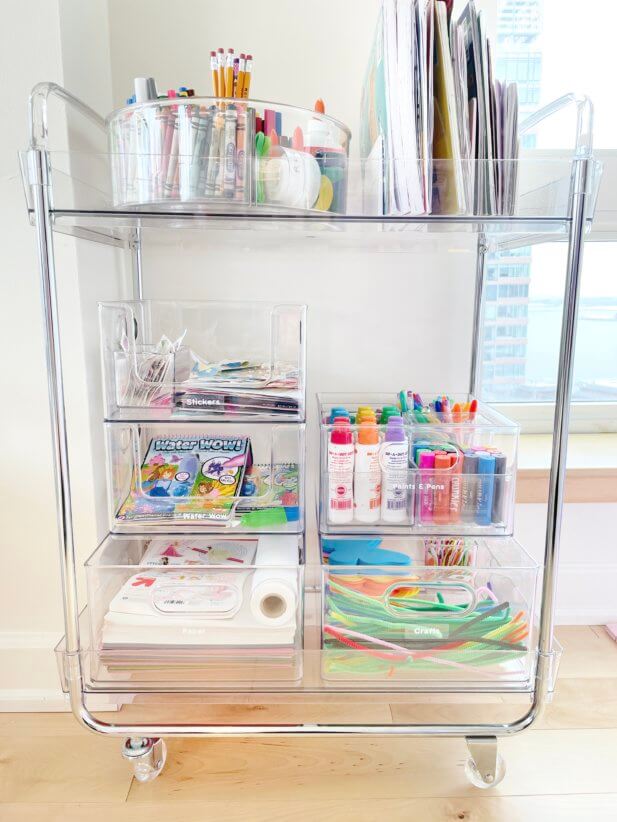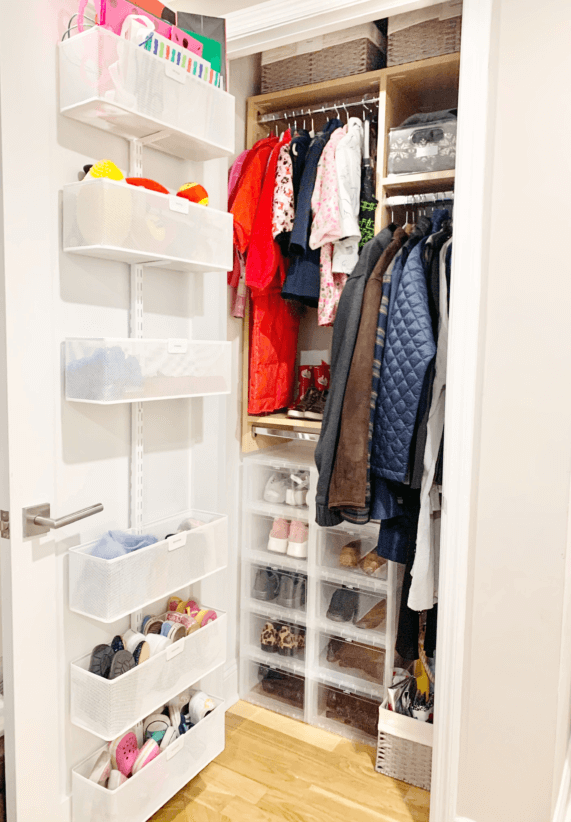
7 Back to School Organization Tips for the School Year
Nothing says back to school like a laundry list of to-do’s, coupled with the excitement of getting your family back on a regimented schedule.
To help ease the back-to-school transition, we’ve got you covered with sure-fire ways to get your family organized and out the door long before that first bell rings!

Organize a drop zone
Implement kid-level hooks or baskets near your entryway for backpacks, jackets, shoes, and any other item that can come off their little bodies. This will keep your floors clear, while establishing independent routines so you aren’t left picking up the pieces of the after school tornado.
This includes designating a spot for water bottles and lunch boxes (if not kept inside their bags), so you can easily detect whether they’ve forgotten their lunch Tupperware before it starts growing another.
Address the papers and art work daily
Kids come home with a lot of paperwork. And while it’s important to acknowledge their hard work, it’s equally as vital to keep the abundance in check. Clock a few minutes with your kids daily to empty their folders and bags.
Finished worksheets or homework can be reviewed and recycled, and current work can go right to their desks or kitchen table for completion. Action papers like permission slips or math tests that need a signature can go to your processing zone or inbox so nothing important slips through the cracks.
Special art work or sentimental items can either be displayed, placed in a bin (to evaluate midway or end of the year) or in a portfolio binder where your kids can flip through and admire their art whenever they want.
If you’re tech savvy, Artkive can digitize and organize your kids art by age and year, completely freeing you of the piles and guilt!
Prep a lunch box system
Stash a bin in the fridge and pantry where you can portion out snack pouches of fruit, veggies, chips, crackers, etc. for the week.
While the “main course” may be limited to a sandwich or some semblance of leftovers, kids can have full control over what fun snack they choose, as everything is (secretly) pre-approved by you!

Designate a homework station
Whether you are purchasing new, or grabbing inventory from your home, create a one stop shop for all of the essentials like sharpened pencils, crayons, scissors, glue, etc.
If your kids prefer to do their homework at the kitchen table, carve space in a nearby drawer or cabinet for items they’ll need to utilize or reference.
If space is limited, a rolling rack can accommodate everything they need, and can be tucked out of sight at a moment’s notice for mealtime or company.
Psst…check out Dorm Room Essentials for Every College Student!

Get ready the night before
With everyone having to get dressed and ready, mornings can get hectic fast!
Prep as much as you can the night before, like aiding your kids in picking out their clothing, making sure their favorite shoes don’t have a colossal knot to untie, and packing backpacks (with everything from backup clothes, to homework, to stuffed animals for show and tell.)
If you’ve got some extra time on Sundays, TikTok moms have been raving about planning out weekly outfits on Sunday nights! We love this hack, which uses Target’s clear stackable organizers to organize our little ones for the week. You pick out your kids’ uniforms or outfits and place them in each organizer labeled by day. The clear stackable organizers are great, too, because if your kids feel like switching something out the night before, it’s a quick and easy fix.
Streamline your mornings with simple breakfast options that your kids can access themselves, and set specific limits with the electronics in advance to avoid arguments or meltdowns when it’s time to go!
Establish an after-school routine
We all know what time our kids have to be at the bus stop or drop off, but what happens when everyone comes home? Maintaining an after-school routine is key, so everyone knows their role without having to be told or questioned.
We love this tip shared from TikTok mom Julie The Systems Gal, who shares her afterschool routine using her clipboard system. Her designated drop zone is right by the front door, where shoes come off and anything from her child’s backpack comes out. Anything that needs to be signed is seen right away, the artwork is shared, and any important flyers are hung up on her clipboard at the drop zone. Then, both mom and her kid head to get homework started.
Sketch out times to dedicate to homework, eating dinner, playtime, clean up, bath, and bedtime. The more kids feel aware and in control, the less they will resist, so plan a routine based on your families needs, and stick to it!
Keep (and reference) a family calendar
If you’ve ever gotten your kids ready for school, only to realize it was “Clerical Day” (or another admin-type day off), then you know how important keeping a calendar is.
From birthday parties, to school events, to “dress like a pirate” day, there’s more to keep track of then our brains can handle. Whether you prefer paper or digital, keep a calendar accessible so you can easily plug in important events, deadlines, and to-do’s.
This keeps everyone’s activities accounted for, and provides a glance of what’s to come so there are no surprises the night before, or even worse, the morning of school.
Be sure to have your annual school year calendar handy! The Printable NYC School Calendar for 2024-2025 is here and is one of our favorite resources.
Laura Kinsella is a mom, wife and owner of Urban OrgaNYze, a New York City based professional home organizing company. Since 2015, she has helped transform hundreds of homes to be more efficient, elegant, and meaningful. She has been featured as a Professional Organizer on A&E’s Hoarders, and more! She loves color-coded closets, The Container Store, and everything about being a mama, minus the glitter.






















